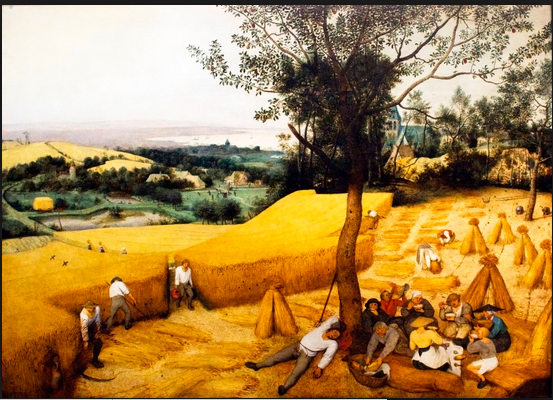Business before industrialization: Are there lessons to learn?
by Judy Stephenson (Wadham College, University of Oxford) and Oscar Gelderblom (University of Utrecht)

Business organization is mostly absent from economic history debate about the rise of economic growth, but it was not always so
As a new protectionist era in political economy dawns, it would be fair to ask what scholarship business and policy can draw on to understand how trade flourished before twentieth century institutions promoted globalization. Yet, pre-industrial business organization, once a central concern in scholarly debates about the rise of capitalism, and the West, currently plays only a marginal role in research on long-run economic development. Once a central pillar of economic history, the subject is almost absent from the recent global meta-narratives of divergence and growth in economic history. Since 2013 Oscar Gelderblom (Utrecht) and Francesca Trivellato (Yale) have been reviving interest, exploring finance and organization in early modern business thanks to a grant from the Netherlands Organization of Scientif Research (NWO).
“our survey suggests that a strong theoretical foundation and rich empirical data exist on the basis of which we can develop a comparative business history of the preindustrial world.”
In May they convened the last in a series of workshops ‘the Funding of Early Modern Business’, in Utrecht, bringing together speakers from around the globe to look specifically at means and methods of funding and finance in a comparative sense.
The old literature on western business focused, for the largest part, on the large chartered and state backed organizations of colonialism, possibly to the detriment of our understanding of domestic and regional business practice. The cases under discussion at the workshop were geographically and methodologically varied – but mostly they stressed the latter. Susanna Martinez Rodriguez (Murcia) examined the cases of Spain’s Sociedad de Responsibiliadad Limitata in the early twentieth century, highlighting the attractiveness of the hybrid legal form for small business. Claire Lemercier (CNRS Paris) showed the use of courts and the legal system by trading businesses in 19th century Paris were a last recourse for the complex credit arrangements of urban trading. A large number of trading women used the courts and this raises the question of whether this represents a larger number of women in business than expected, or whether other means were less accessible to them. Siyuan Zhao (Shanghai) showed the vast records available to the researcher of Chinese business forms in the 19 century. His case showed that production households operated with advanced subcontracting networks of finance. As the first day ended conversation among participants and discussants – including Phillip Hoffman, Craig Muldrew, Heidi Deneweth and Joost Jonker focused on contracts, enforcement, and the varied ways in which early modern businesses responded to costs and risk.
Meng Zhang (UCLA) delighted participants with meticulous research showing that small farmers and plot owners in 18th-century Southwestern China securitised timber production and land shareholdings with complex contracts risk mitigation among small agricultural operators that allocated future output and allowed division of land and produce. Her work challenges current narratives of China in the 18th century. Judy Stephenson described the significant credit networks of seventeenth century building contractors in London. The structure and process of the contract for works enabled the crown and city to finance major infrastructure development after the Great Fire. Pierre Gervaise showed that French merchants in the southwest were opportunist in using their de facto monopolies on supply of goods to Bordeaux to price gouge. His amusing and detailed archival sources give the opportunity for new analysis of French supply chains and transaction costs.
Thomas Safley needed no introduction to this audience. His work on fifteenth and sixteenth century Southern German family networks is well established, but here he demonstrated that norms and collective action institutions in southern Germany were distinctive. Mauro Carboni traced the development of the limited partnership to 15th century Bologna and described the contract stipulations made as the time of partnership formation.
One of the key areas that Gelderblom & Trivellato highlighted as of particular interest was that of women in business in the early modern period. Hannah Barker used her wide research in women and family business to discuss the high number of trading businesses in mid-19th century Manchester run by women, and make the point that existing accounts of welfare and output do not take women’s businesses into account. The area is one with active research.
The overall picture gained from the workshop was of the remarkable organization flexibility of early modern business co-ordination, most particularly y in relation to credit. Almost all cases showed businesses moderating and contracting the rights and involvement of creditors in varied ways non-financial ways. Almost all cases indicated that contracts entered into determined outcomes to the same or greater degree as the structure of the enterprise.
Gelderblom & Trivellato have come to the end of the project but will continue to forge research links and networks on early modern business. Their work so far shows clearly that research into domestic and regional businesses before 1870 will bear fruit for historians, and very probably business leaders too.

